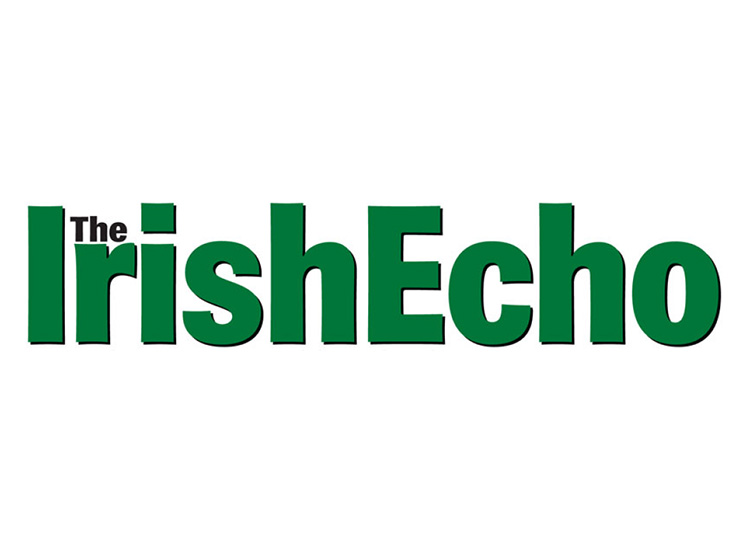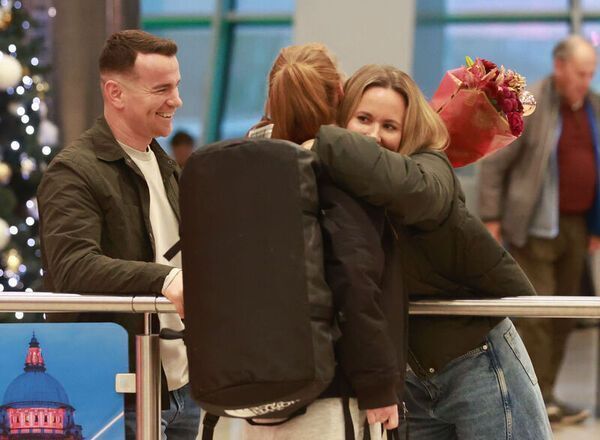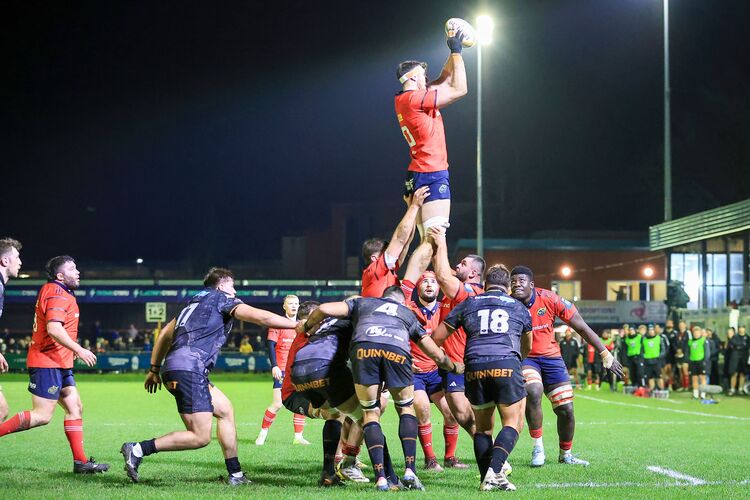Mick Moloney.
PHOTO COURTNEY KING/EMERALD
By Colleen Taylor
This week, Dublin will commemorate the centenary of the Easter Rising. Naturally, music is going to play an important role in the day’s events. In fact, it seems like nearly every band in Ireland will be there, so that every genre, every generation will be represented in the schedule. I was surprised and warmed to see an interesting Irish-American musical component to the commemorations. Dublin is taking into account the whole scope of the Easter Rising’s musical impact.
On Easter Monday, O’Connell Street will transform into a massive outdoor stage, so that music will fill the space of the GPO and reach out across all the side streets of Dublin City Centre all day long. The lineup for the O’Connell Street stage is as impressive as you’d expect it to be: folk singers the High Kings—members of the Clancy and Furey clans among them—will play, as will accordionist Sharon Shannon, and traditional band Danú. But it’s not all straight traditional Irish music. Folk and blues duo the Lost Brothers will perform, as will folk singer Mundy (who will no doubt do a rendition of his famous “Galway Girl” with backup from Sharon Shannon). Classically trained singers will harmonize on the stage: including the Celtic Tenors, Lisa Lambe (formerly of Celtic Woman) and Simon Morgan. Finally, and perhaps, most importantly, one very significant choir will play the main stage on O’Connell: Gloria, Dublin’s LGBTQ choir, will perform on the day, demonstrating how far Ireland has come in 100 years.
The planned musical commemorations will explore all kinds of various detail pertaining to the history of 1916. For instance, the St. Mary’s College Singers will perform as part of a concert called “Left Behind—Songs of the Easter Widows.” After the choir performs traditional ballads, composer Simon O’Connor will presents a new suite of songs which explore the personal stories of the wives of the 1916 rebels. As a whole, the centenary schedule displays a genuie effort to include the female voice and perspective—both musically and historically—in the discourse. On top of the “Songs of the Easter Widows,” there will be a lecture and concert featuring all-female Irish band the Henry Girls, to honor Hanna Sheehy Skeffington and Constance Markievicz.
The St. Mary’s singers will be part of another lecture on the day as well. They will follow a talk by historian Declan Kiberd on the role of the “future” for the revivalists and Easter rebels. In fact, there is a clear impulse in each of the scheduled events to include Irish music as a key component of the investigative Irish identity lectures. A series of talks led by Roisin Higgins and Dr. Maureen Gaffney on the psychological components of 1916 for collective national identification will feature music from the Mary, Mother of Hope National School choir. All these mustidisciplinary events speak to the incremental way in which Irish music, of all different shapes and sizes, has molded the cultural consciousness of Ireland. The schedule speaks (or sings) for itself: music plays a crucial roll in reflecting on how and what Irishness means a century after 1916.
Other big names will be performing in Dublin on the March 28. Frances Black will play an already sold-out show at Liberty Hall. An afternoon show at the Shelbourne is also already sold out, featuring the RTE Contemporary Quartet. Luckily, another outdoor stage will be built on the Southside of the city, on Lower Fitzwilliam street, so that everyone can take part in the musical commemorations. Various musicians will play all day on that Fitzwilliam Street stage, from Fiach Moriarity and Lisa O’Neill to Kila.
Finally, one of New York’s own familiar names will be part of a conversation on the Irish diasporic population’s role in 1916. Mick Moloney, a regular at the Irish Arts Center in Manhattahn, will take Dublin’s Gaeity Theatre stage to sing and narrate the history of Irish America to a full house. Paul Muldoon will be there too, reading his poetry as part of the discourse. On top of this, the musical diaspora emerges in various ways in the musical lineup itself. For instance, Irish Americana band Old Hannah and folk/blues band the Lost Brothers, two of the performers on the day, embody the diaspora in their very choice of musical genre in that they play Americana music for a career yet were born and raised in Ireland. The music of commemoration day speaks to the audible definition of Irish culture as well as the transatlantic influence of the two nations.
You can find out more about how RTE is covering the events and take part in them yourself, even from across the pond at: 1916.rte.ie.







